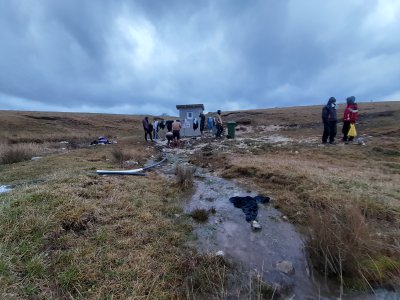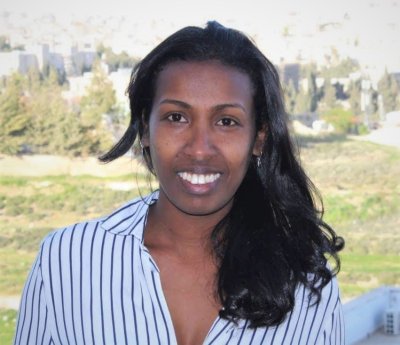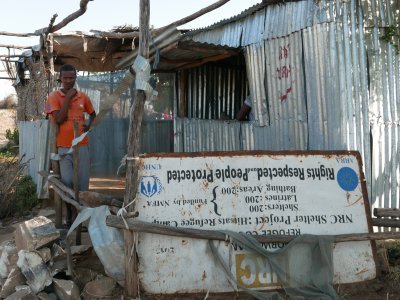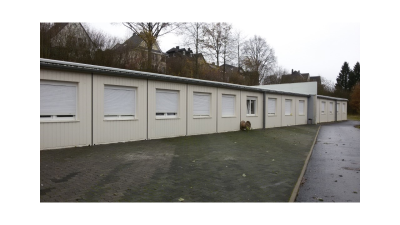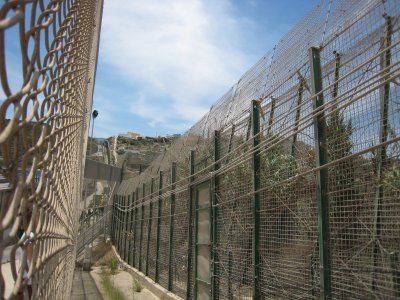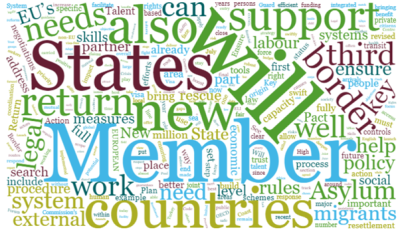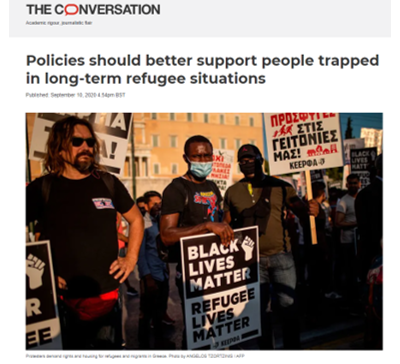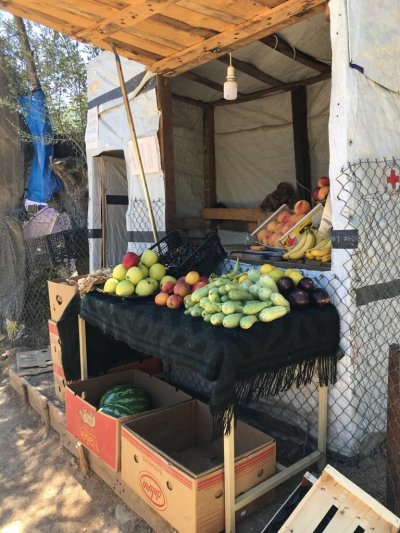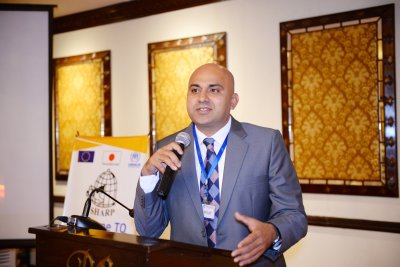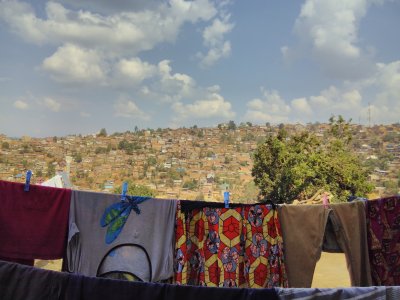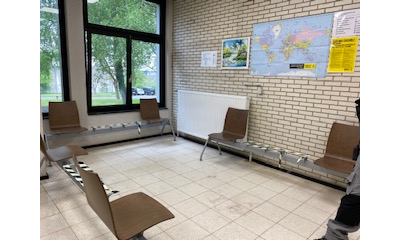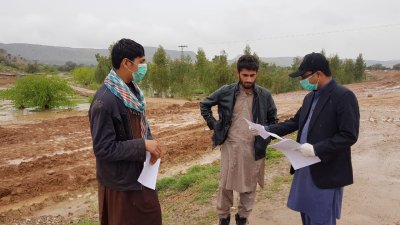Blog
In our TRAFIG Blog we share insights of our project activities. TRAFIG researchers introduce themselves and tell stories from our empirical field work. We also inform about recent policy events relevant to the themes (protracted) displacement as well as refugees and IDP’s mobility as well as translocal connectivity. We also welcome external contributions. If you wish to publish a short piece that addresses some of our TRAFIG themes, please write to contact@trafig.eu.
Forced migration as a fragmented process: (Im)mobility in Una-Sana Canton, Bosnia
Insights from field research at the EU external border in Bosnia and Herzegovina
by Philipp Themann
The Bosnian Canton Una-Sana at the European Union's external border is currently the end of the line for thousands of refugees. With the devastating fire in Camp Lipa just before Christmas, thei... Read more
Update of the TRAFIG fieldwork in Greece
Eva Papatzani, Filyra Vlastou, Alexandra Siotou and Panos Hatziprokopiou from the TRAFIG Team in Greece, report on their activities and insights from the fieldwork in Athens, Lesvos and Chios, and Thessaloniki since September 2020.
Athens
From September to early November 2020 (start of... Read more
MAGYC (Migration Governance and asYlum Crises)
Funded by the European Commission’s Horizon 2020 Programme, the MAGYC project (2018-2022) seeks to assess how migration governance has been influenced by the recent ‘refugee crises’ and how crises at large shape policy responses on migration.
Since the beginning of the ‘refugee crisis’ in 2014... Read more
Meet TRAFIG Team member Mulu Getachew Abebe from Addis Ababa University
Meet Mulu Getachew Abebe - a member of the TRAFIG research team at the Addis Ababa University, Ethiopia - and find out more about her experience, her motivation and her work in the TRAFIG project.
My name is Mulu Getachew Abebe. I am a PhD candidate in Social Anthropology at Addis Ababa Universi... Read more
Eritrean refugees in Ethiopia—Caught between all fronts
By Markus Rudolf
Background
Forced displacement in Ethiopia is a complex issue with, in part, contradictory trends. In 2018, when the Eritrean–Ethiopian peace agreement laid the foundation for opening borders and the Nobel Peace Prize, between one and three million people were displaced by int... Read more
Insights from TRAFIG field work in Germany
By Simone Christ
The German research team
Germany is one of the destination countries in western Europe for people who have to flee from their homes. In BICC’s fieldwork in Germany that we are responsible for in the project, we use different qualitative methods: semi-structured interviews, bio... Read more
Migrant or Asylum Seeker: Is the distinction still relevant?
A view on the “Rapid Screening” phase of the New EU Pact on Migration and Asylum
By Shamin Asghari
A young Afghan man was born and raised in Iran. He does not have an official resident permit, even though his parents have been living in Iran for the past 30 years. He has a paper which prevents h... Read more
The New Pact: Supporting or constraining mobility out of protracted displacement?
By Caitlin Katsiaficas and Martin Wagner, ICMPD
The European Commission’s New Pact on Migration and Asylum is aimed at breaking years of political deadlock on the reform of a coordinated approach to asylum and migration management in the region. In doing so, it hopes to build a stronger and... Read more
Policies should better support people trapped in long-term refugee situations
In The Conversation, Carolien Jacobs (Leiden Unviersity), Nuno Ferreira (University of Sussex), Emanuela Roman (FIERI) and Benjamin Etzold (BICC) plead for urgently needed policy changes that focus on displaced people’s actual needs and the realisation of truly durable solutions. The short article... Read more
Meet TRAFIG Team member Eva Papatzani
Meet Eva Papatzani, a member of the Greek TRAFIG research team at the School of Spatial Planning and Development, Aristotle University of Thessaloniki (A.U.Th.). She is a PhD Candidate in Urban Social Geography at the Department of Urban and Regional Planning, School of Architecture of the National... Read more
TRAFIG Fieldwork in Greece
In Greece, the restrictions applied during Covid-19 pandemic along with the two new Laws adopted since the beginning of 2020, have further tightened migration controls, protection and reception systems, and asylum procedures. Although some expert interviews took place online in May, fieldwork in Gre... Read more
Meet TRAFIG Team Member Muhammad Mudassar Javed from SHARP Pakistan
Meet Muhammad Mudassar Javed, the director of TRAFIG partner SHARP-Pakistan. He has studied Social Anthropology and has worked for many years with refugees, asylum seekers, IDPs, prisoners, women and children. In his work, he focuses on expanding the reach and impact of the capacity building work... Read more
Doing research on migration and asylum: Responsibilities and limits
By Carolien Jacobs, Leiden University
On June 30, we kicked of the H2020 projects' joint webinar series ‘Zooming in on Migration and Asylum’ with a discussion on ‘Doing research on migration and asylum’. Triggered by recent publications by UNHCR and the IDMC, Carolien Jacobs (Leiden University)... Read more
Asylum reception during the pandemic: How can systems become more resilient?
By Caitlin Katsiaficas and Martin Wagner, ICMPD
The Covid-19 pandemic has resulted in a number of far-reaching impacts on daily life across Europe, and asylum systems are no exception. With the outbreak, the accommodation of applicants and beneficiaries of international protection in reception facilities has posed several concerns related to the health and care of both residents and staff which have spurred a host of changes across European reception systems and facilities – with important implications for residents. Reception is a key first step in providing an effective solution to displacement for asylum seekers in Europe. It is not only part of a state’s obligation to provide protection and access to asylum, it is also the first entry point into receiving societies, providing orientation, accommodation and other key introductory services. Covid-19 has had a significant impact on both the functioning of reception systems and facilities and on the lives of asylum seekers and refugees in reception. Read more
COVID-19 and its impact on displacement situations in Pakistan
Notes on the challenges caused by COVID-19 and the pandemic's impact on displacement situations in Pakistan
By Muhammad Mudassar Javed, SHARP Pakistan
The number of COVID-19 cases in Pakistan continues to grow. The total number reached 10,513 as of 23 April 2020, with 224 deaths. In urban... Read more

